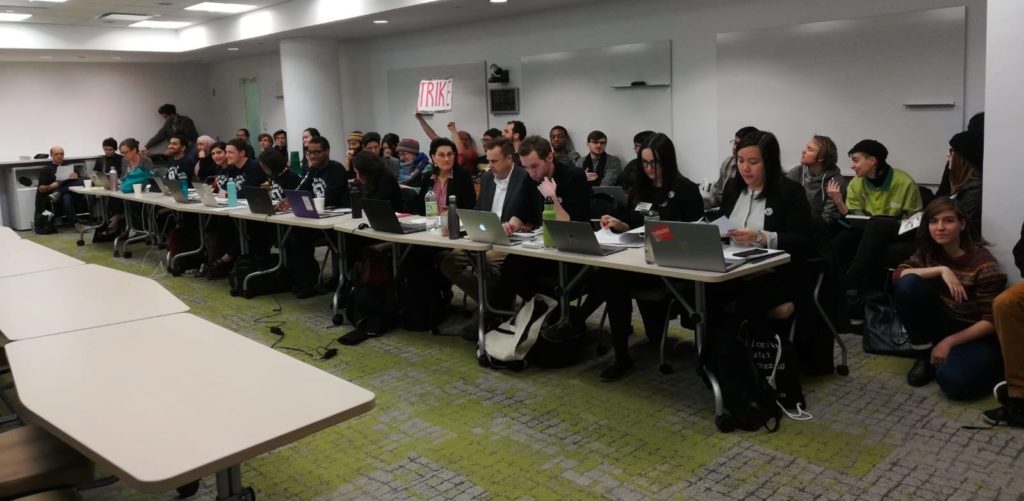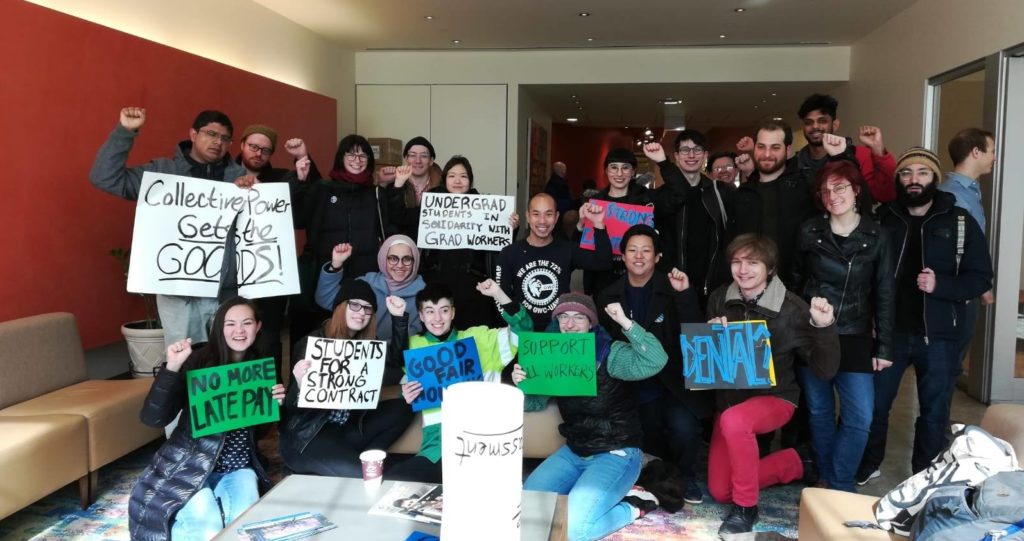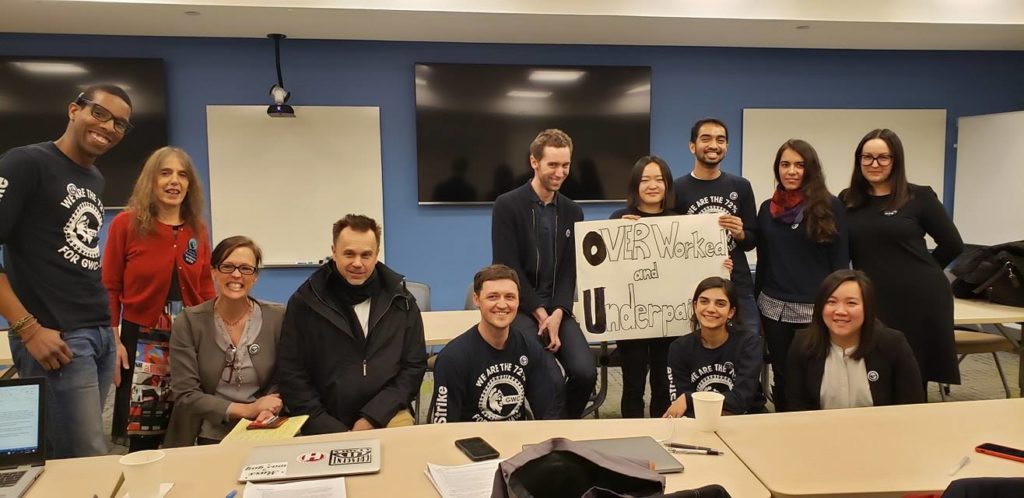Graduate workers! After nearly two decades of tireless organizing, we are excited to announce that yesterday at 1:30 PM, negotiations began with Columbia University administrators and legal counsel to begin the process of negotiating a fair contract — one that has a great potential to substantially improve our working conditions.
We presented the Columbia team with list of bargaining goals that you ratified with a 91% vote. The bargaining goals reflect your input and concerns — the issues that you said affect graduate workers the most.

Ian Bradley-Perrin kicked off the presentation by pointing out that financial insecurity carries steep costs, both to our personal well-being and to our ability to do the quality work Columbia expects of us. Batul Hassan reminded the administration that “health care is a human right” is the slogan of the School of Public Health; yet seeing a physician is infuriatingly difficult, and receiving care can cost graduate workers thousands of dollars out-of-pocket.
Yash Amonkar stressed the needs of graduate workers with families, and the bare-bones support Columbia currently offers. Angela Woodall decried the incredibly long wait-time to be reimbursed for work-related travel expenses, and the devastating consequences this can have on underpaid graduate workers. And Helen Zhao really brought it home in deploring the administration’s total lack of leadership in addressing the pernicious culture of sexual harassment and discrimination that exists on campus. Read our bargaining goals here.
But even more impressive and heartwarming were the dozens of you who came to the bargaining session to support us and observe the negotiations for yourselves. We counted over 40 of you there, seated behind us. Now THAT’s what solidarity looks like! Please join us as often as you can in future sessions. Your presence makes a difference; we were stronger because you were there.

How did the administration’s team respond to our emphatic declaration of our bargaining goals? Well… they weren’t exactly excited. While the lead Proskauer attorney expressed hope that we might eventually be able to reach some sort of agreement, he made it very clear that the road ahead will be difficult. In particular, he stressed the blurry boundary between ‘student’ and ‘worker’, as well as the administration’s desire that the Equal Opportunity and Affirmative Action (EOAA) office — which handles sexual harassment complaints between grad workers and faculty — remain uncompromised by the bargaining process. However, he also acknowledged that it is only through the bargaining process that we can resolve these and other issues and work out a fair agreement that advances our mutual interests.
We didn’t agree to bargain just for the sake of bargaining. Any contract that emerges from this bargaining process must secure major improvements in our working conditions, or it simply wouldn’t be worth having at all. And remember: you, the members of our union, will ultimately be the ones to decide whether to ratify or not any contract we manage to extract from this University’s administration.
We look forward to proposing specific contract language at the next bargaining session on Wednesday, March 6, at 2:00 PM. The location is to be determined.
In the meantime, what can you do? Above all, stay involved in the bargaining process! There are many ways to do this:
- Engage in collective action with us! Come to rallies, participate in unit-wide votes, and other union actions. Our numbers make a difference!
- Actively participate in a working group. This is where a lot of the specific concerns grad workers have are communicated to us. We rely heavily on your personal experiences to know precisely what needs to change, and how to translate that into contract language.
- Attend the bargaining sessions in person. Your presence in the room makes a big difference.
- Have one-on-one conversations with your peers to keep them excited and engaged. If this feels intimidating (we know the feeling), contact us and we’ll find someone to go with you.
- Frequently check this blog, and get your friends to read it, too. Also, check our “countdown to April 6, 2020” clock. Remember, it is our strike threat that will move Columbia to bargain earnestly more than anything else.
This was the first skirmish of a long, hard fight ahead. But if there is anything we have learned from our own history, it is that together there is nothing we cannot achieve. Solidarity, grad workers!
Fun fact from the bargaining table: partners at Proskauer (the law firm the administration pays to fight their own workers) bill at a modest rate of $1,350 per hour. This means that a single, eight-hour day spent fighting the Columbia Postdoctoral Workers (CPW-UAW) and GWC costs this University at least $10,800 (which doesn’t include the rest of the legal team, who bill at a meager $750/hr or less). That’s more than a third of most of grad workers’ annual compensation!

